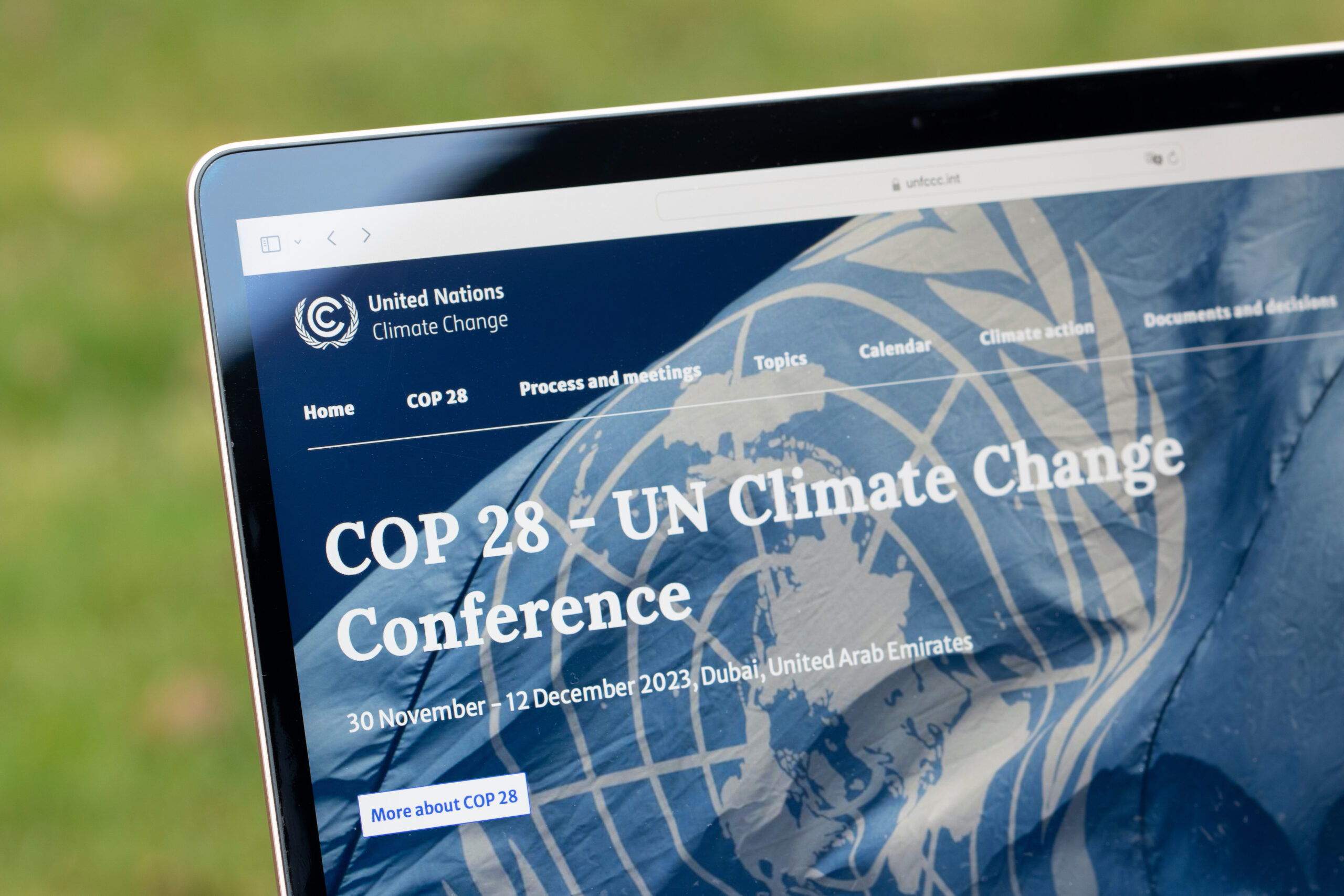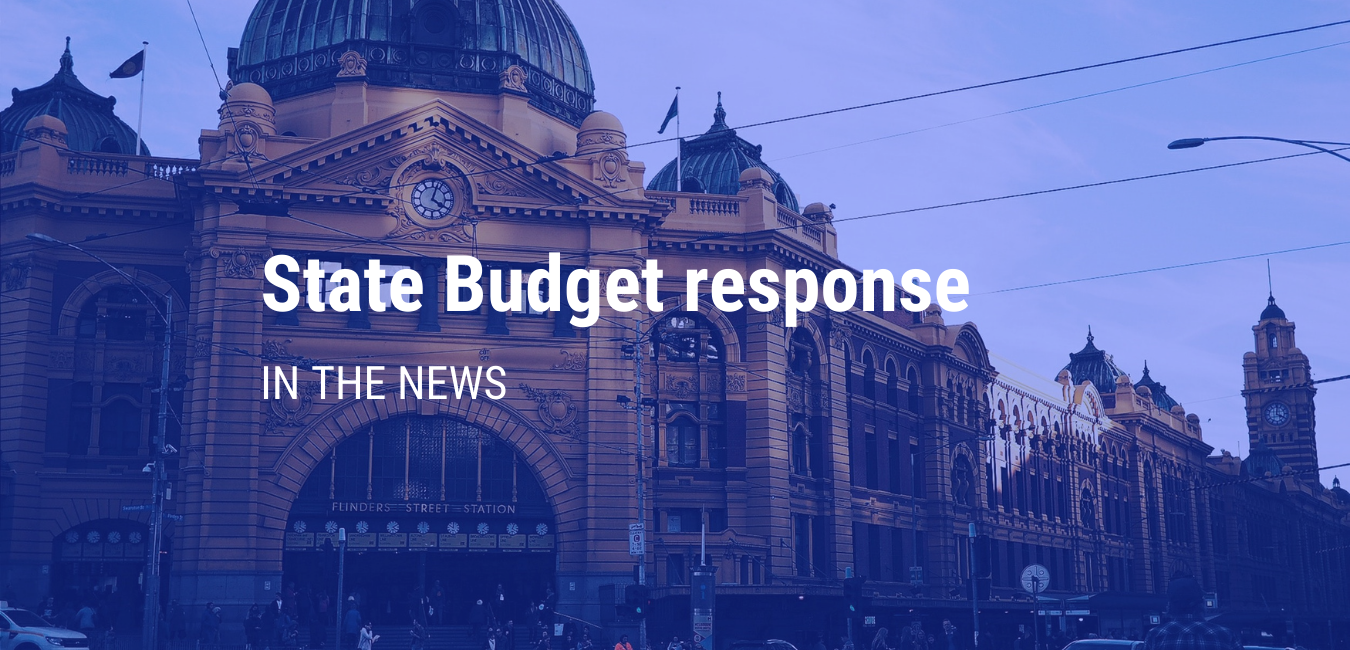
News
COP28 – What is on the agenda and what is Australia hoping to achieve?
Kate Dundas | December 1, 2023
From 30 November until 12 December 2023 at Expo City, Dubai, the Conference of the Parties (COP) of the United Nations Framework Convention on Climate Change (UNFCCC) kicked off the 28th United Nations Climate Change conference – commonly referred to as COP28.
Australia is represented by the Minister for Climate Change and Energy Chris Bowen MP and Assistant Minister for Climate Change and Energy, Senator Jenny McAllister. Assistant Minister McAllister has a lead role in one of the key areas of negotiation at COP28 – a new global goal on enhancing countries’ ability to adapt to the impacts of climate change.
This year’s event kicked off with a first-day agreement to operationalise the loss and damage fund – a fund that helps compensate vulnerable countries coping with climate change destruction. UN Secretary-General António Guterres welcomed the agreement and called on leaders to “make generous contributions and get the Fund and the Climate Conference started on a strong footing.” Notably, the hosting country, the United Arab Emirates, committed $100 million (USD) to the fund. Germany also announced a $100 million (USD) contribution, with the United States and Japan announcing contributions as well.[1]
With Australia as one of the largest fossil fuel exporters in the world,[2] there is hope that Australia will also commit to the loss and damage fund when Minister Bowen arrives for the second week of COP28.
Perhaps the most notable process of this years’ COP, is the conclusion of the first Global Stocktake, which assesses global progress towards Paris Agreement goals. Additional priorities of COP28 include energy transition, renewable energy commitments, and biodiversity protection – which provides opportunities for the private sector to showcase climate and nature initiatives.
COP 28 is also expected to develop outcomes in a number of other key areas including authorisation processes for carbon market development (Article 6.2 of the Paris Agreement), transparency reports, and the urgent need for clarity on climate finance commitments. Parties are considering a New Collective Quantified Goal on climate finance (NCQG) and review reports from climate funds.
Below you’ll find Australia’s position on each agenda item of COP 28, provided via Carbon brief.
| Australia | Energy | Phase out all fossil fuels | Does not support |
| Australia | Energy | Phase out unabated fossil fuels | Priority |
| Australia | Energy | Triple renewable energy capacity | Priority |
| Australia | Energy | Double rate of energy-efficiency improvements | Priority |
| Australia | Energy | Double low-carbon hydrogen production | Priority |
| Australia | Ambition | 2035 NDCs aligned with 1.5C pathway | Does not support |
| Australia | Ambition | Peaking global emissions by 2025 | Priority |
| Australia | Finance | Align financial flows with the Paris Agreement | Priority |
| Australia | Finance | Expand contributor base | Priority |
| Australia | Global Stocktake | All major emitters to increase 2030 NDC ambition to be 1.5C aligned | High priority |
| Australia | Global Stocktake | Ensure equity is mentioned in the decision | Oppose |
| Australia | Global Stocktake | Increase private finance mobilisation | High priority |
| Australia | Loss and damage | Operationalise the Santiago Network | Priority |
| Australia | Loss and damage fund | Fund linked to liability and compensation | Oppose |
| Australia | Loss and damage fund | Hosted by the World Bank | Support |
| Australia | Loss and damage fund | Operationalise the fund | Priority |
| Australia | Loss and damage fund | Primarily sourced from grant-based public financing | Does not support |
| Australia | Loss and damage fund | Supports “particularly vulnerable” countries | Priority |
In regards to the recent history of COP, there have been ongoing efforts over the past few years to secure agreement to phase out fossil fuels, with an evolution of language over that time.
During the 2021 COP26 summit, countries reached an agreement to “intensify efforts towards the phasedown of unabated coal power.”[3]
During COP27 over 80 countries, including the EU, the US, and India, advocated for revising the language to endorse a worldwide “phaseout of all fossil fuels.” While this proposal did not find its way into the final outcomes, the broad support it garnered among countries indicates a growing momentum for a global phaseout of all fossil fuels.
At COP28 an escalating number of nations are calling for a comprehensive global initiative to phase out fossil fuels, Australia does not support this action. If Australia is to host COP31, we need to move towards a phase out of all fossil fuels to reach the Paris agreement and keep the world within 1.5 degrees of warming.
___________________
[1] COP28 talks open in Dubai with breakthrough deal on loss and damage fund. Accessed 1 December, 2023. Available at: https://news.un.org/en/story/2023/11/1144162
[2] Australia ranks third for fossil fuel export. Accessed 1 December, 2023. Available at: https://australiainstitute.org.au/post/new-analysis-australia-ranks-third-for-fossil-fuel-export/
[3] Who wants what at the COP28 climate change summit. Accessed 1 December, 2023. Available at: https://www.carbonbrief.org/interactive-who-wants-what-at-the-cop28-climate-change-summit/
___________________


